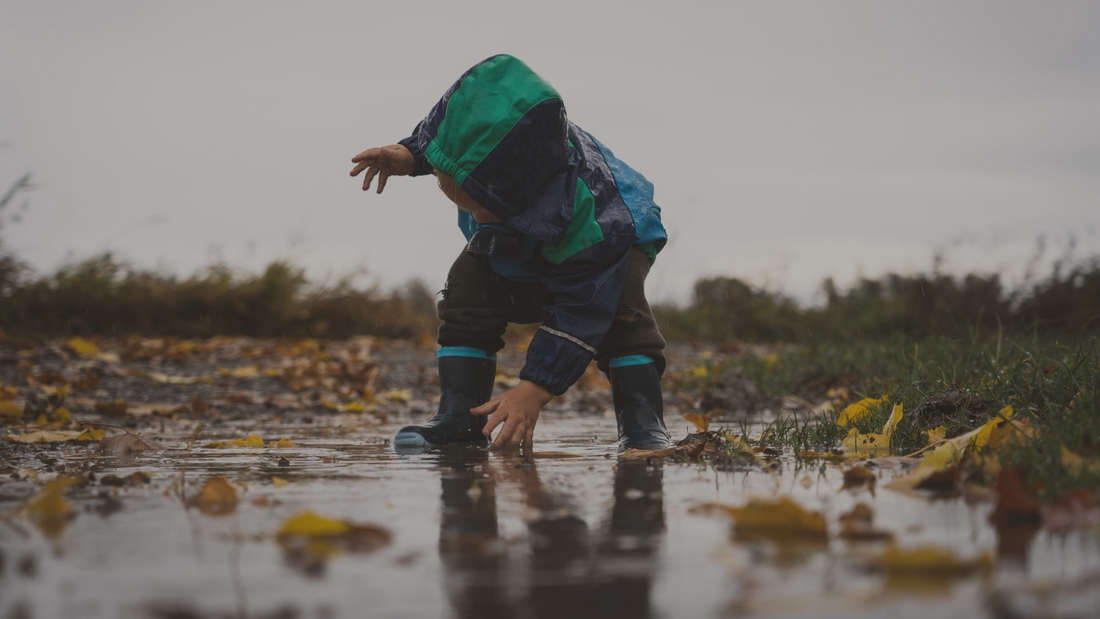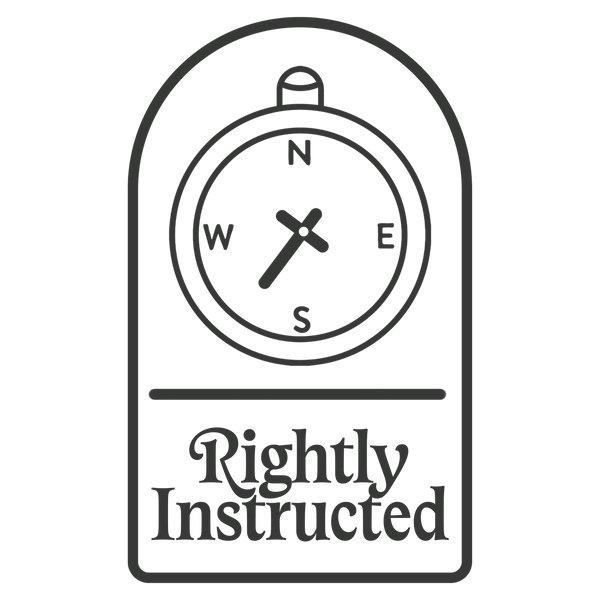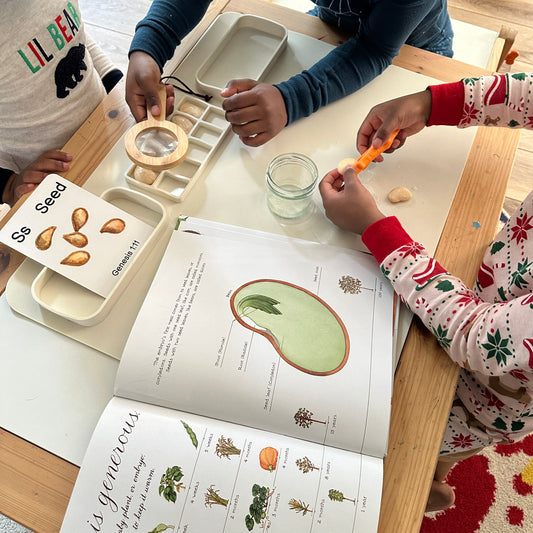
What to Teach a Toddler
Share
So you want to get a jumpstart on learning. Maybe your little one is just a year out from Kindergarten, and you're worried if he'll be ready. Or maybe she's a bit younger and into everything, so you figure you might as well involve her in something constructive and educational. Or maybe you just want a better structure and flow to your time together during the day. If any of these resonate with you, you're in the right place.
There are tons of reasons to get excited about early learning. But sometimes our excitement turns to dread or overwhelm when we don't know where to start or what to do with these little minds God has given us to mold.
The great, relieving news is: our children are already learning. Every time they are engaged in play, they're learning! Their minds are making connections, they're learning what things are and how they work. And the more they get to explore and experiment, the more confident they'll be in scenarios when problem solving, critical thinking and reasoning skills are needed.
Teach your child to be a good learner
At this stage, the best learning is done primarily through play and hands-on engagement in everyday activities. So release yourself of the pressure to master the memory work (aka reciting their ABCs and counting to 100) before they reach Kindergarten.
Right now, your child is learning how to learn. Here are a few foundational things to focus on so they can be great learners once they officially begin school.
Encourage discovery
Present lots of different opportunities to experience new things and environments. Spending time outside is the best (and frankly, least expensive) way to do this. Take your time guiding their attention to various aspects of your outdoor environment. On slower days that require more encouragement, choose one aspect to focus on. On days they show more interest or energy, follow their lead. Build their vocabulary by using vivid language to describe to them what they're observing and experiencing.
Empower exploration
Some of the most memorable learning (and childhood) moments happen in the middle of the biggest messes. Brace yourself. Designate approved outfits and shoes for paint projects and puddle jumping so you can say "yes" comfortably when those moments arise.
Let them bring tools, or co-opt not-too-pointy sticks to dig and poke around. Always discuss safety while exploring outdoors, but try to avoid a default "no" response for the sake of your own comfort or convenience. Unless there's a hazardous situation, do your best to let them follow what intrigues them while playing. As the grownups in charge, it's our responsibility to create a safe environment for exploration, but the exploring itself is up to the child.
Engage in conversation
Nurture your child's curiosity by asking lots of questions and encouraging them to do the same.
A "see-think-wonder" approach can be a good place to start. First, ask what they see. Then, ask them what that makes them think about. Finally, ask what questions they have (what do they wonder?). Let them practice predicting and hypothesizing to come up with their own conclusions before offering answers of your own. Allow them to think through cause and effect scenarios and work through the "what ifs" that surface in their minds. Wondering aloud is a great way for them to make connections and practice articulating their observations, thoughts and questions.
This might start as more of a stream-of-consciousness monologue for you if your little one hasn't started talking yet. But modeling this process builds their observation and communication skills.
If in your learning time together you can teach them to be inquisitive, articulate their thoughts and questions and enjoy the processes of observing and exploring, you're setting a foundation for you toddler or preschooler to be a great learner.



